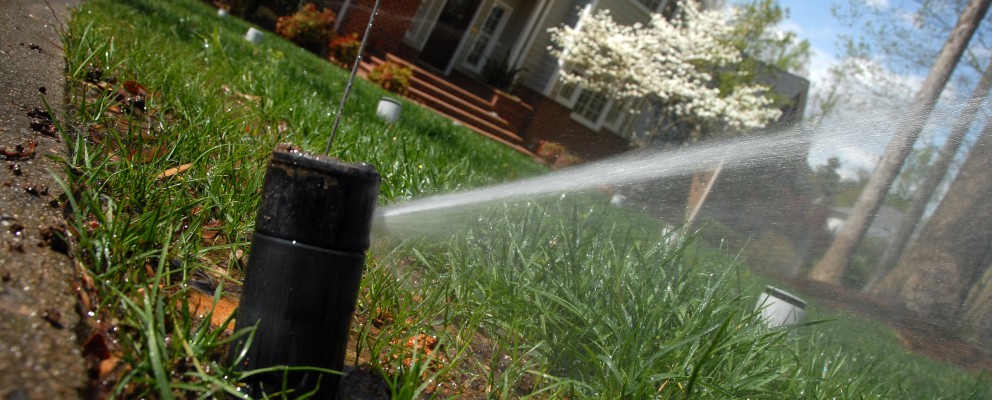New research helps water managers understand who responds to conservation programs.
It was a dry summer in North Carolina and many communities enforced restrictions on outdoor irrigation of lawns and yards throughout the summer. Droughts are not flukes these days and with rapid population growth in North Carolina, water shortages may be more likely in the future. While we don’t have much control over how much it rains, we do have control over how we use the water we have.
Water utilities are just as interested in water management as environmental economists and they use their vast water consumption data to measure how much water is being used throughout the year. Understanding aggregate consumption is important, but not the whole story as NCSU alumnus Casey Wichman (M.S. Economics, 2011) and CEnREP faculty Laura Taylor and Roger von Haefen show with recent research.
What utilities don’t have is much information about is the people who live behind those water meters. Wichman and his coauthors combine an anonymous survey of homeowners with water price and use data across NC to find out how water costs affect different people’s water habits. They also investigate the impacts of voluntary and mandatory water restrictions on different households, since these are popular conservation tools for water managers.
Though higher prices means lower water usage on average, Wichman and colleagues find the wealthiest households and those with in-ground irrigation systems don’t respond much to water price increases. They also find that people who have historically very high water use respond more to price changes.
Wichman and coauthors go beyond exploring prices however, since water utilities are often reluctant to raise prices for their customers, even when water supplies are tight. For many households, voluntary water restrictions were found to decrease water consumption by 3%. However, the authors note that they could not detect a response to voluntary restrictions by households with in-ground irrigation systems. Interestingly, historically high water users tended to be more responsive to voluntary restrictions than their counterparts, cutting their use by an additional 7%.
Mandatory water restrictions tended to have a larger effect of reducing water use by 9% on average across households studied. In this case, homes with in-ground irrigation systems generally reduced twice as much water as others (in percentage terms), standing in stark contrast to their responses to both prices and voluntary restrictions.
Want to learn more? Access the full study here or contact any of the study’s authors:
Casey Wichman (wichman@rff.org)
Laura Taylor (laura_taylor@ncsu.edu)
Roger von Haefen (roger_von_haefen@ncsu.edu)
